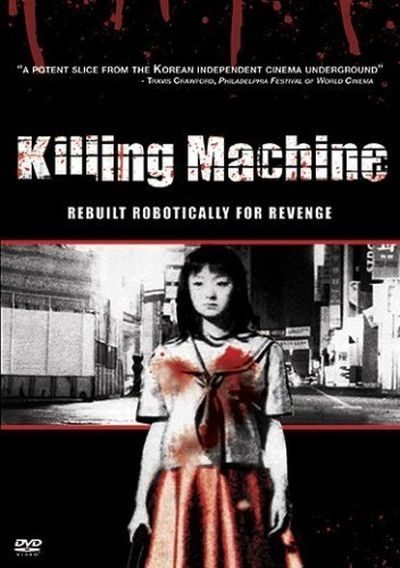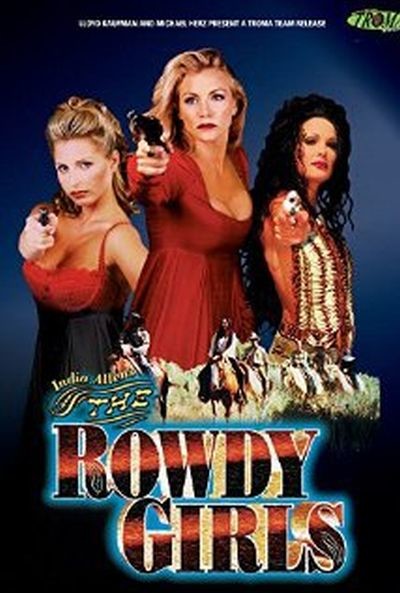★★
“Somewhat eye-dentical.”
 This opens with a scene that is almost a direct life from the similarly titled Eye for An Eye, directed by John Schlesinger four years previously. Here, businesswoman Carmen Pak (Cheong) is on a video-call – or, at least, the primitive 2000 version thereof – with her daughter, Shan (Tong), when someone breaks in and attacks Shan. Carmen can do little except watch in horror as her daughter is brutalized and raped. Though Shan identifies her rapist as Kiu Chi Yeung (Tong), there’s enough doubt over her statement, specifically regarding a tattoo he does not posses, that the police are unable to do anything. After further tragedy, Carmen decides to seek the justice she has been denied, through her own hands.
This opens with a scene that is almost a direct life from the similarly titled Eye for An Eye, directed by John Schlesinger four years previously. Here, businesswoman Carmen Pak (Cheong) is on a video-call – or, at least, the primitive 2000 version thereof – with her daughter, Shan (Tong), when someone breaks in and attacks Shan. Carmen can do little except watch in horror as her daughter is brutalized and raped. Though Shan identifies her rapist as Kiu Chi Yeung (Tong), there’s enough doubt over her statement, specifically regarding a tattoo he does not posses, that the police are unable to do anything. After further tragedy, Carmen decides to seek the justice she has been denied, through her own hands.
To this movie’s mild credit, it does divert from its American predecessor after the opening sequence, though this never manages to find its own identity entirely. It’s based on a rather shaky premise: namely that someone accused of rape would then, almost without hesitation, embark on a relationship with his accuser’s mother. It’s not even as if Yeung doesn’t know who Carmen is, which could have given the concept a sheen of plausibility. She’s right there when Shan physically attacks him after they both leave the police station. The script tries to walk a line of uncertainty as to whether or not Shan is guilty, though not particularly successfully. If you can’t figure out who was the perpetrator before the final confrontation, you haven’t been paying enough attention.
I did like the supporting character of Officer Chan (Ko), who initially comes off as a bit of a callous jerk, caring more about his mahjong losses than the rape case he’s investigating. However, he becomes more sympathetic as things unfold, being more a harried and overworked cop, who still tries to warn Carmen into taking care of things herself. It’s likely a better arc than the heroine gets, her development being largely summarized in a training montage where she hides a knife in the sofa, and uses it to attack innocent watermelons. It’s a curiously specific bit of practice, one made all the more odd by having little or no relevance down the road. She’s no more than semi-competent in terms of self-defense.
The same grade likely applies to the film-making on view as a whole. I can’t point to any elements that are especially deficient. Yet even less can I point to any elements which demonstrate innovation or even artistry. Everything plods along in workmanlike fashion, towards an ending that offers no particular surprises or thrills. Considering the subject matter, it’s surprisingly tame as exploitation, and would barely seem out of place as a Lifetime original movie. I was left yearning for the lurid excess of someone like Wong Jing to inject some pep into proceedings. We are, after all, talking about an anti-rapist vigilante here. This feels more like Carmen is fighting white-collar crime of some kind.
Dir: Yuen Shu-Wai
Star: Angie Cheong, Michael Tong, Blacky Ko, Leila Tong





 You’ll understand why, when skimming leisurely through a streaming channel on the Roku, I screeched to a halt at this title. Even though the “official” English title is just Killing Machine, I knew I immediately had to watch it. Yet, while the title
You’ll understand why, when skimming leisurely through a streaming channel on the Roku, I screeched to a halt at this title. Even though the “official” English title is just Killing Machine, I knew I immediately had to watch it. Yet, while the title  We recently wrote about the movie version of the Sheena story,
We recently wrote about the movie version of the Sheena story,  Usually she transforms into what she calls the “Darakna” – which essentially means she puts black mud on her body and gloves, with bone claws on to slash her enemies to death. Don’t worry: it’s neither bloody nor (after the first time they show it to us) very exciting. I just wonder if, by doing that, she also immediately became super-powered. though she already is a strong fighter. Or if it just made the killing easier for her, as she then wasn’t “quite herself” (to quote Norman Bates!).
Usually she transforms into what she calls the “Darakna” – which essentially means she puts black mud on her body and gloves, with bone claws on to slash her enemies to death. Don’t worry: it’s neither bloody nor (after the first time they show it to us) very exciting. I just wonder if, by doing that, she also immediately became super-powered. though she already is a strong fighter. Or if it just made the killing easier for her, as she then wasn’t “quite herself” (to quote Norman Bates!). That said, while the show (like most shows of its ilk at the time) is underwhelming compared to “Hercules” and “Xena”, I do think the screenwriters really tried to come up with as inventive stories as possible, given the fact that the “adventures in the jungle” was already a genre as dead as a door-nail. There are some good ideas here: plants that raise certain hormones in your blood, making you love-struck as well as murderous (therefore having Cutter and Sheena try to kill each other); a female black Rocky in the jungle, faced with countless attacks by her opponents; a kind of “X-files”-episode, with the audacity to play that show’s musical theme a couple of times in the episode; or the dangerous giant ants that eat anything. setting Cutter and Sheena in quite a distressing position.
That said, while the show (like most shows of its ilk at the time) is underwhelming compared to “Hercules” and “Xena”, I do think the screenwriters really tried to come up with as inventive stories as possible, given the fact that the “adventures in the jungle” was already a genre as dead as a door-nail. There are some good ideas here: plants that raise certain hormones in your blood, making you love-struck as well as murderous (therefore having Cutter and Sheena try to kill each other); a female black Rocky in the jungle, faced with countless attacks by her opponents; a kind of “X-files”-episode, with the audacity to play that show’s musical theme a couple of times in the episode; or the dangerous giant ants that eat anything. setting Cutter and Sheena in quite a distressing position.

